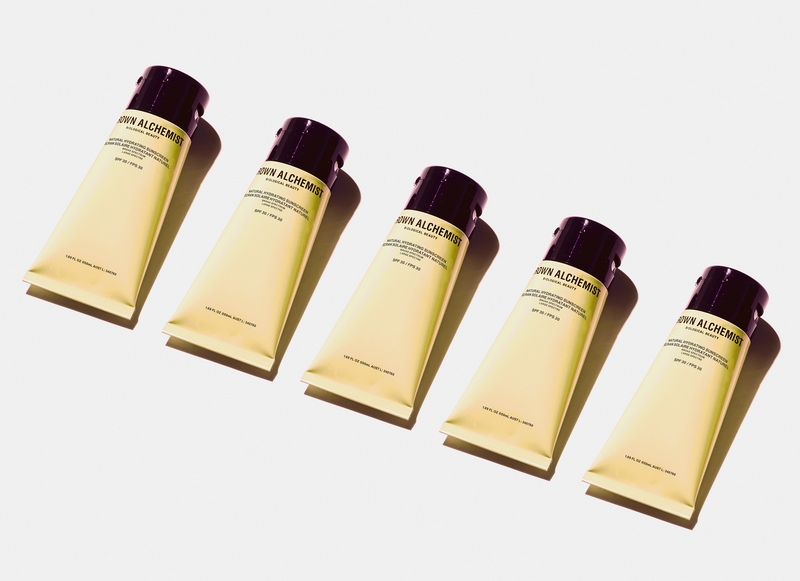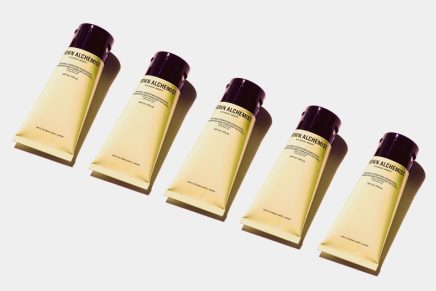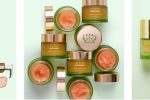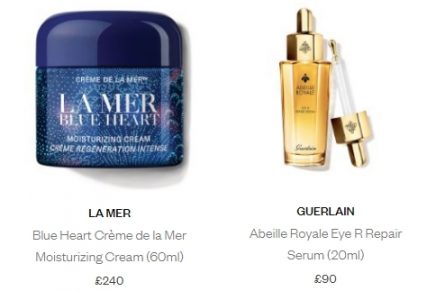Eco-friendly Skincare: investing in beauty and wellness goes hand in hand with investing in the environment.
From ethical ingredient-sourcing and vegan and cruelty-free formulas to giving back to communities and new era packaging, meet the skincare heroes doing the world of good.
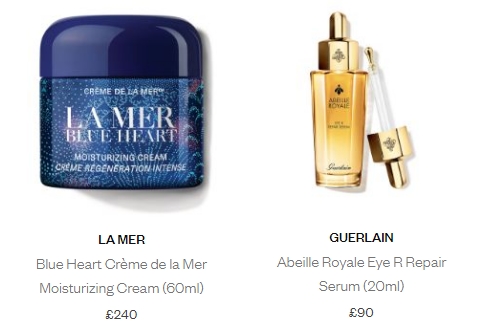
LA MER Blue Heart Crème de la Mer Moisturizing Cream (60ml); GUERLAIN Abeille Royale Eye R Repair Serum (20ml); @Harrods
Beauty That Gives Back: Sustainable Ingredients
Each year, La Mer, one of the most coveted skincare brands in the world, launches its limited-edition Blue Heart jar, where sales contribute to the La Mer Blue Heart Oceans Fund, set up to support marine conservation organisations all over the world. Now in its fourth year, the fund has supported conservation initiatives in the Azores, the Caribbean and the East China Sea, with this year’s focus a three-pronged approach: protecting oxygen-creating organisms; safeguarding sustainably sourced seafood supplies; and supporting local neighbourhood clean-up programmes. The luxury beauty brand also announced its pledge to ensure at least 75 per cent of packaging is sustainable by 2025.
Guerlain Bee Respect online platform allows beauty fans to check up on the origin of the brand’s ingredients and packaging. Information on the source of the Ouessant honey in the Abeille Royale Day Cream, for example, is plentiful, from its location at the Breton Black Bee Conservatory Association, a UNESCO reserve in France, to its downloadable organic certifications.
Reef safe sunscreen: If you’re looking to do your bit for the reefs, the EWG suggests using a sunscreen formulated with zinc or titanium dioxide.
“Sunscreen gets a bad rep for being harmful to coral, but in reality, it’s only a few ingredients that are known to cause bleaching and damage coral DNA – these include oxybenzone and octinoxate (octyl methoxycinnamate),” says Harrods beauty experts.
“Oxybenzone is one of the most commonly used sunscreen active ingredients and the most worrisome,” says Jeremy Muijs, founder of Grown Alchemist. “It has an alarming Environmental Working Group (EWG) toxicity score of 8, causing skin penetration in large amounts, skin allergies and possible hormone disruption.” As such, the brand’s Natural Hydrating Sunscreen contains no harmful ingredients, and is instead formulated with zinc oxide, which Muijs says is one of the best UVA blockers. It’s 100-per-cent natural, 100-per-cent vegan and 100-per-cent reef-safe.
Eco-Friendly Packaging
Not only are Tata Harper formulas 100-per-cent natural and biodegradable, but Tata Harper has long been a pioneer for eco-friendly packaging that goes much further than simply being recyclable.
“Almost all of our products come in glass – and those that don’t are made with 100 -per-cent recyclable bio-based sugarcane plastic,” says Tata Harper. “Our cartons are made with certified paper from sustainably managed forests, and we also use biodegradable soy ink to reduce the toxicity of our cartons.” Moreover, the brand is expanding its refillable options across the entire range.
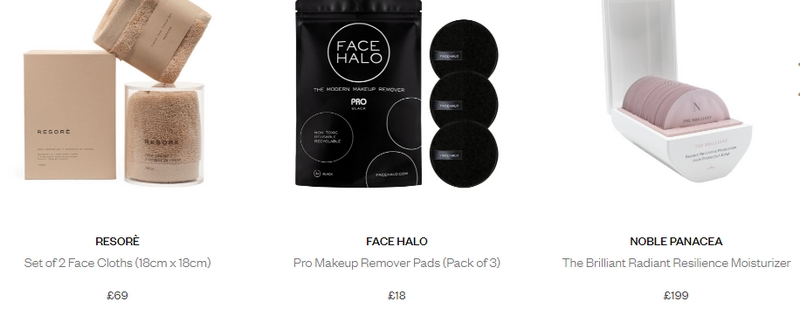
RESORÈ Set of 2 Face Cloths; NOBLE PANACEA The Brilliant Radiant Resilience Moisturizer; FACE HALO Pro Makeup Remover Pads;
Reducing single-use waste is one sure-fire way to a more sustainable future.
It could take up to 100 years for just one face wipe to biodegrade in landfill, and more than $2bn is still spent globally on face wipes every year. Two simple swaps: Face Halo’s reusable rounds are brilliant alternatives to cotton wool or pads; and Resoré face towels are woven with antimicrobial and antibacterial fibres to keep your cloth cleaner for longer. Just pop it in the machine when you’re done. Not all single-use is sinful, however. Noble Panacea – whose daily doses are individually packaged for many positive reasons, including keeping the active ingredients the most potent they can be – has a partnership with TerraCycle to effectively recycle each packet. Plus, the brand has introduced a beauty refill programme, so there’s no need to repurchase the outer case.

